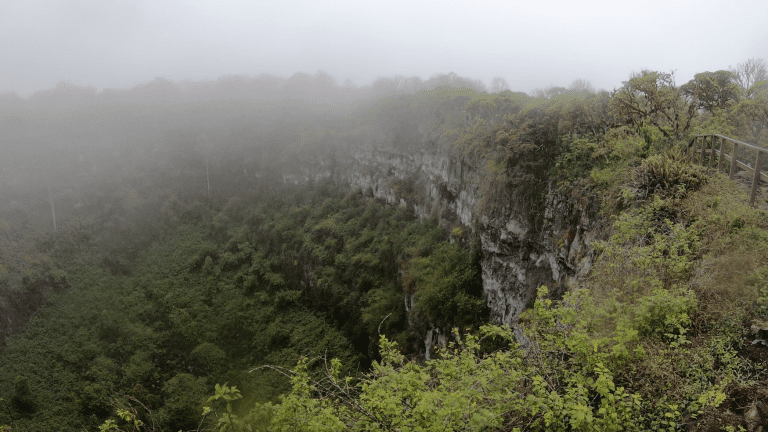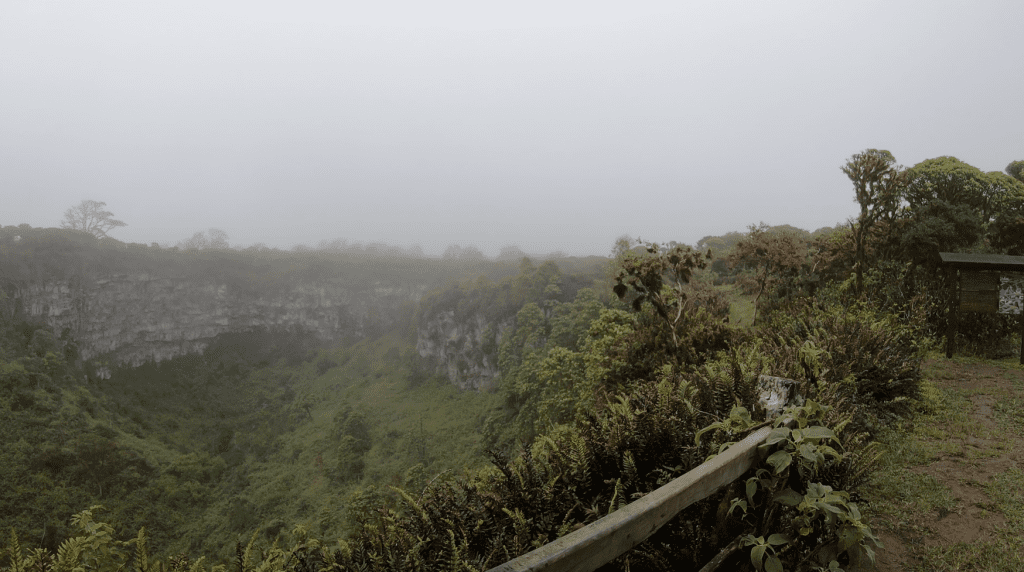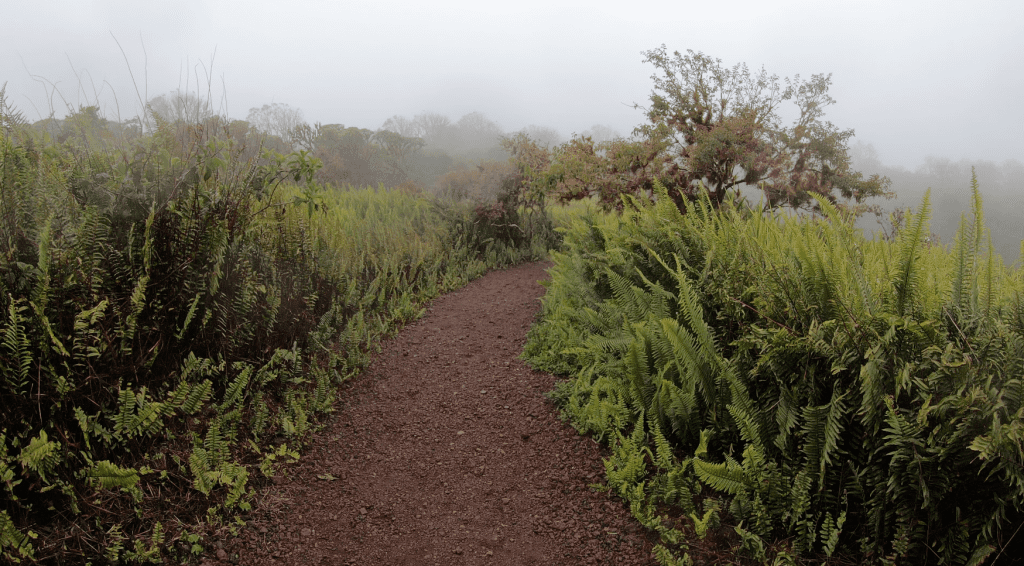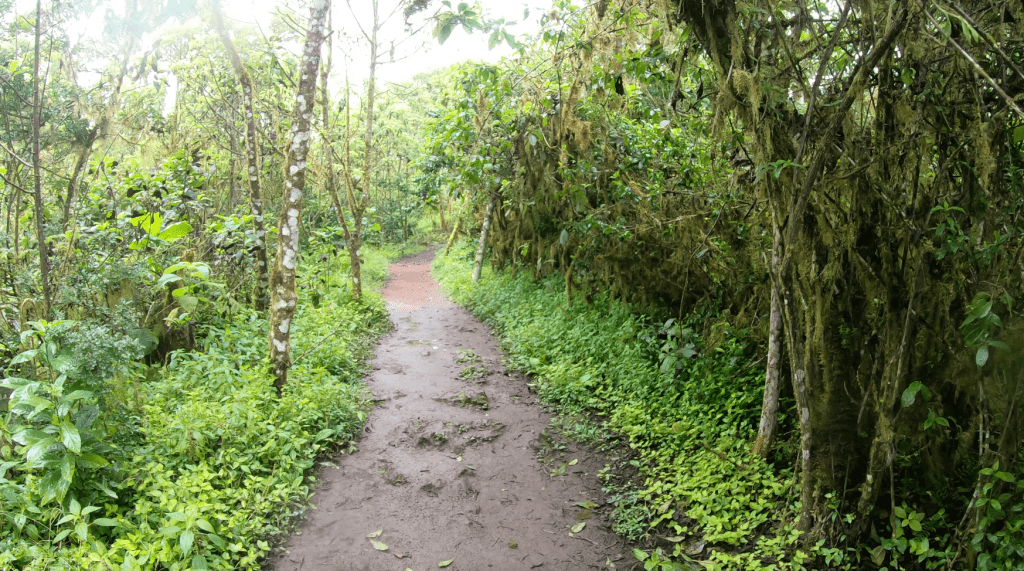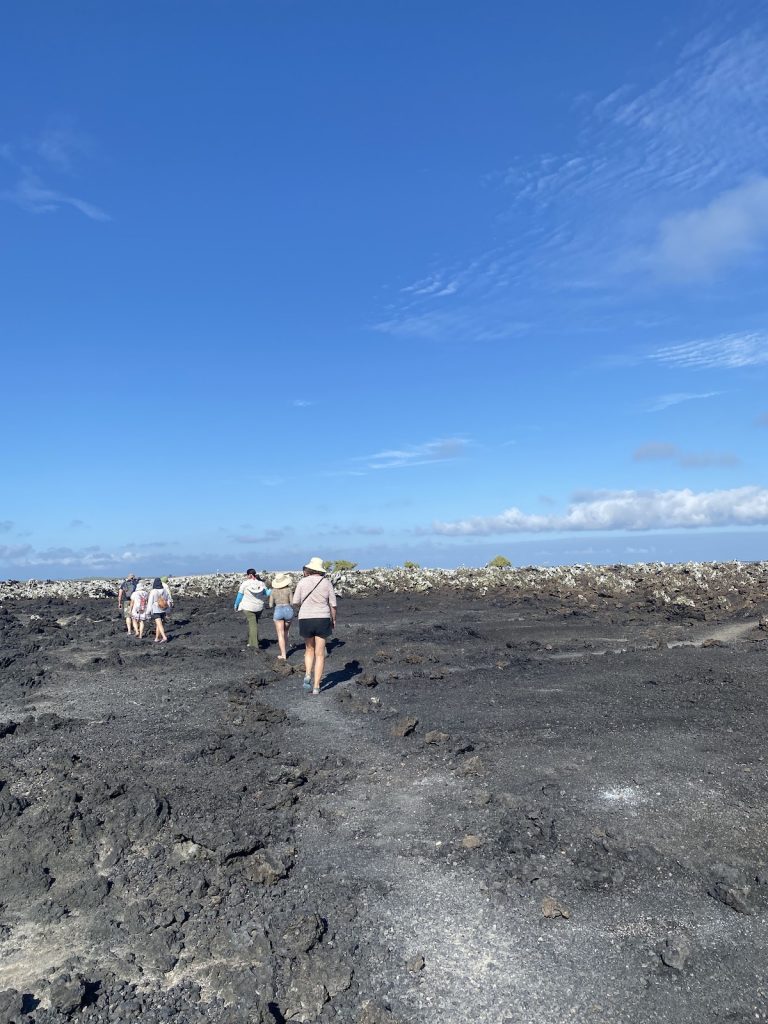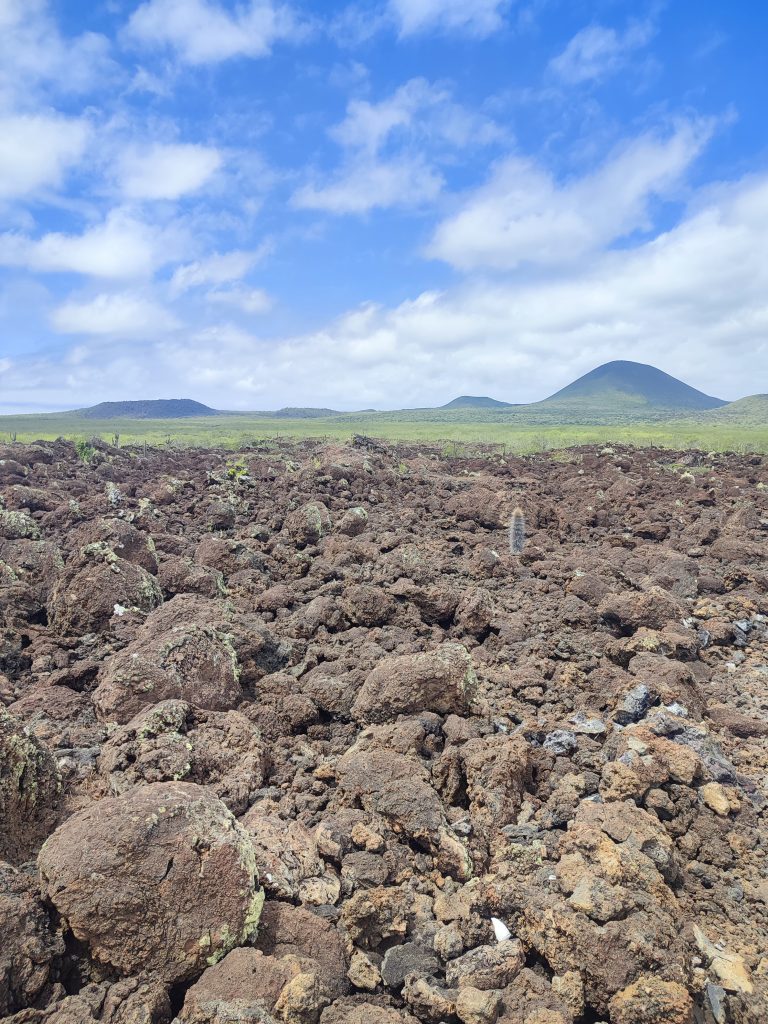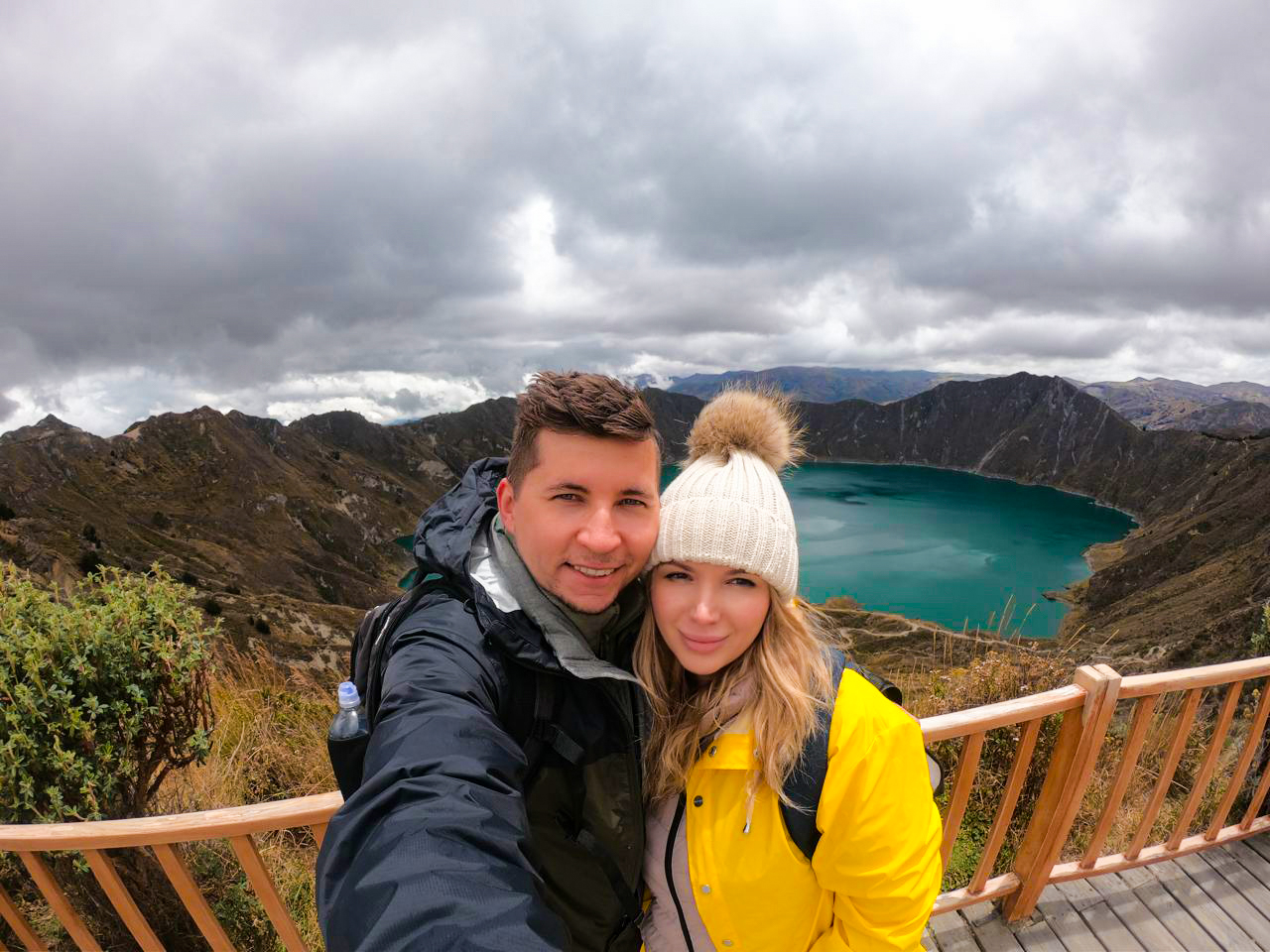Los Gemelos, or the Twin Craters, are located in the highlands of Santa Cruz Island. Despite their name, they aren’t actually craters but rather sinkholes formed from collapsed magma domes. The outer layers of these lava domes solidified, while the inside kept flowing, eventually creating large, hollow chambers that collapsed over time. The result is a stunning landscape that resembles two enormous pit craters. Many travelers consider it one of the must-see spots in the Galapagos Islands, and I’m excited to share our experience exploring this unique natural wonder.
Looking back, exploring Santa Cruz’s highlands required some planning – from timing our visit for the best wildlife viewing to combining it efficiently with other attractions. Skip the uncertainty I faced and get a FREE personalized Galapagos trip quote from my trusted local experts who know exactly how to integrate this unique spot into your itinerary. Your booking helps support both this blog and local Galapagos communities.
Table of Contents
Plan perfect trip to Ecuador & Galapagos
I spent countless hours researching everything about traveling to Ecuador, and I created this blog for fellow travel enthusiasts who want the best, most reliable information. But if you want to save time, we’ve partnered with the top local agency to plan your dream trip.
Where is Los Gemelos Located?
The Twin Craters are nestled in the highlands of Santa Cruz Island, surrounded by a mix of farmland and natural woodland. This area is a haven for the iconic Galapagos giant tortoise and Darwin’s finches. Interestingly, the two craters are located on opposite sides of the island’s main road, making them easy to access.
What struck us immediately was how different the climate here felt compared to the lower parts of the island. The craters are surrounded by lush scalesia forests, which our guide humorously referred to as “broccoli trees” because of their dense, bushy canopies. This forest is rich with life, filled with bromeliads, orchids, mosses, and lichens. As we explored, we were on the lookout for the colorful vermillion flycatcher, several species of Charles Darwin finches, and even the occasional short-eared owl. The biodiversity here was truly remarkable.
How to Get to Los Gemelos
Los Gemelos is often included as either the first or last stop on the way to Baltra Airport for many Galapagos cruise itineraries. It’s a convenient stop that adds a unique experience before wrapping up your journey.
For those on land-based tours, it’s also possible to visit Los Gemelos as a half-day excursion. If you’re staying in Puerto Ayora, you can easily plan a trip to the Twin Craters at your own pace, making it a flexible option for exploring the natural beauty of Santa Cruz Island.
Los Gemelos is about a 20-minute drive from Puerto Ayora. If you are going to Los Gemelos on your own, there are two ways to get there:
By Taxi
A convenient way to visit the Twin Craters is by taking a local taxi. The great thing is that you can usually negotiate the fare with the driver, and they’re often willing to include wait time in the price. In our case, we managed to agree on $30 with our driver to visit three different spots in the area. It was a hassle-free and cost-effective way to explore the highlands at our own pace.
By Bike
If you’re feeling adventurous, renting a bike is another great way to reach the Twin Craters. There’s a dedicated bike path that takes you all the way there. We’d recommend starting early in the morning to avoid the heat, especially since the ride uphill can be challenging. But the effort is definitely worth it, as you’ll be rewarded with a relaxing downhill cruise on the way back. It’s a fun and active way to explore the highlands!
Enjoying the Scenery in Los Gemelos
We visited Los Gemelos as part of a day tour, accompanied by a knowledgeable guide who shared fascinating insights about the local birds and unique vegetation. The dirt and gravel trails around the craters are well-maintained, making the short hike accessible for people of all ages.
There are several short paths leading to lookouts over each of the sinkholes, providing stunning views of the craters. For those looking for a bit more exploration, there’s also a longer trail, about 500 meters, that can be comfortably hiked in about an hour, with plenty of breaks to take in the scenery. It’s a peaceful and rewarding walk, perfect for nature lovers.
We spent some time simply relaxing on the crater rim, taking in the breathtaking views and enjoying a bit of birdwatching. Honestly, this spot was perfect for just unwinding and appreciating the serene beauty of the Galapagos highlands. It’s one of those places where you can pause, soak in the scenery, and truly connect with the peaceful surroundings. For us, it was a wonderful moment to just rest and absorb the natural splendor of these incredible islands.
Wildlife in Los Gemelos
The hills surrounding the Twin Craters on Santa Cruz are alive with bird songs, especially in the early morning hours. As we strolled through the dense woodland, we were surrounded by the sounds of various Galapagos bird species. It was an incredible experience to listen to the chorus of chirps and calls echoing through the forest, making this area a birdwatcher’s paradise. The deep forest provides a perfect habitat for a wide range of species, adding another layer of beauty to the already stunning scenery.
This area is a haven for bird enthusiasts, with eight of the thirteen Darwin finch species spotted here. The differences between these finches can be subtle, so identifying them often comes down to observing details like color, beak size, body shape, and behavior.
In addition to the finches, we were delighted to catch glimpses of vibrant vermillion flycatchers, the elusive short-eared owls, and the graceful Galapagos doves. The forest is rich with birdlife, offering a wonderful opportunity for birdwatchers to discover a variety of species in their natural habitat.
Trust me, while most visitors focus on the beaches, spots like Los Gemelos showcase a completely different side of the Galapagos! Want to experience both the coastal highlights and highland treasures without missing anything special? Get a FREE expert itinerary from my recommended local agency. Your booking supports this blog and local Galapagos businesses.
Best Time to Visit Los Gemelos
Los Gemelos is a great destination to visit year-round, but the scenery changes with the seasons. From January to June, during the warm and rainy season, the surrounding trees and plants are at their most vibrant and lush. If you visit during these months, it’s wise to bring rain gear, as unexpected showers are common.
We visited in September, which is typically drier, but we still experienced quite a bit of wet weather. So, it’s always a good idea to be prepared, no matter the season, as the highlands have a way of surprising you!
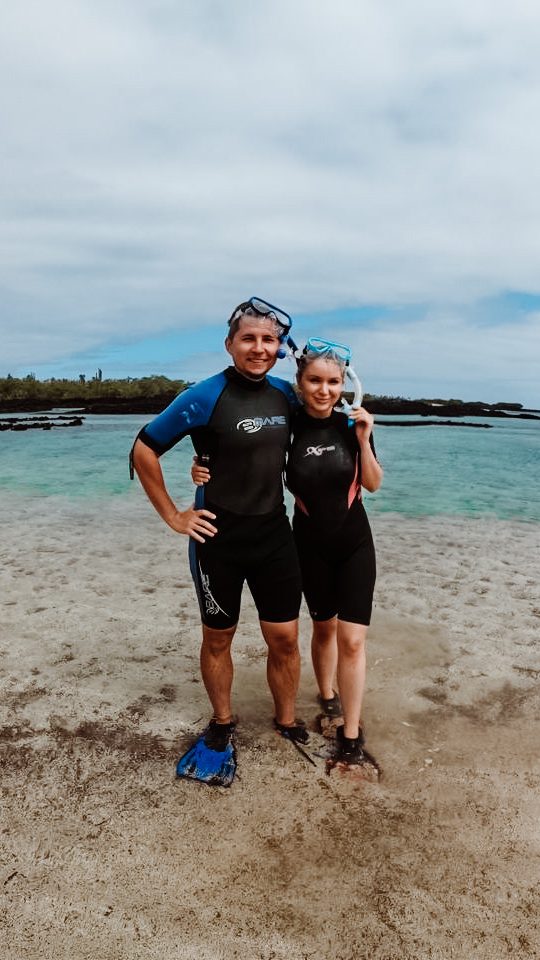
Planning trip to Galapagos Islands?
My wife and I spent two weeks on these magnificent islands, visited nearly every possible tour, and explored as much as we could. I shared all the important details in my comprehensive Galapagos Islands Travel Guide, where I cover everything you need to know about planning a trip to the Galapagos.
Galapagos Islands travel might surprise you with extra fees to enter the islands, the complicated logistics between islands, booking tours, and knowing which spots are free to explore and which ones are not. I’ve covered it all in this Galapagos Travel Guide.
Also, if you’re planning a trip to the Galapagos, make sure to use my link for discounted hotel prices via Booking.com. It really helps support my blog!
Bottom Line
Los Gemelos is truly a wonderful spot to unwind. While many travelers stop by for a quick visit, we found that spending a bit more time here was incredibly peaceful. The views were so captivating that it felt like time stood still for a moment. Beyond the stunning scenery, the abundance of wildlife added to the magic of the experience.
If you’re looking for a serene escape where you can take in both breathtaking views and rich biodiversity, this is the place. And if you’re interested, you can easily book a tour to explore this remarkable site at your own pace.
Have questions about your upcoming Galapagos trip? Join my Galapagos Reddit community and ask other travelers who recently visited the islands. Get up-to-date tips, real experiences, and honest advice from other travelers (I ban tour agencies and resellers).
We highly recommend taking your time to truly soak in the beauty of this location. Find a spot to sit quietly, and let the birds come to you as you enjoy the stunning surroundings. Visiting Los Gemelos offers a completely different Galapagos experience compared to the beaches and lowlands. It’s a chance to relax in the heart of unspoiled nature, where you can unwind and appreciate the peaceful highland atmosphere. Treat yourself to this serene escape—it’s a refreshing change of pace that we found deeply rejuvenating.
Plan perfect trip to Ecuador & Galapagos
I spent countless hours researching everything about traveling to Ecuador, and I created this blog for fellow travel enthusiasts who want the best, most reliable information. But if you want to save time, we’ve partnered with the top local agency to plan your dream trip.

